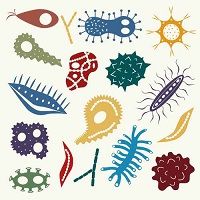Gut Microbiome Changes Contribute to Inflammatory Bowel Disease
Microbial changes are a contributing factor to inflammatory bowel disease (IBD) development, according to findings published in Cellular and Molecular Gastroenterology and Hepatology.

Microbial changes are a contributing factor to inflammatory bowel disease (IBD) development, according to findings published in Cellular and Molecular Gastroenterology and Hepatology.
Researchers from the University of Michigan used germ-free mice, which were colonized by the gut microbiota isolated from ulcerative colitis (UC) and Crohn’s disease (CD) patients to evaluate the role of gut dysbiosis associated with the two types of IBD.
The researchers analyzed microbiomes of those mice as well as control mice in addition to using bacterial function gene analysis, luminal metabolome analysis and host gene expression analysis.
The researchers noticed that changes in the gut microbiome populations were often seen in IBD, but it was previously unclear if these changes were an effect of disease or if they actually participate in causing the disease progression.
The study authors reported that despite some similarities, the UC and CD patients’ microbial composition were not identically replicated in the mice those samples were transferred into. For example, there were comparisons among decreased diversity and alteration of bacterial metabolic functions.
This suggested to the investigators that microbial community alterations, characteristic for IBD, could be replicated in the humanized gnotobiotic mice used in the study.
Experts added that colonization by the microbiota linked to IBD caused a pro-inflammatory gene expression profile in the gut that resembled the immunologic signatures found in CD patients.
The CD instigated more severe colitis in the mice than the healthy control patients developed when they were colonized in a germ free environment. “Dysbiosis potentially contributes to that pathogenesis of IBD by augmenting host pro inflammatory immune responses,” the study authors concluded.